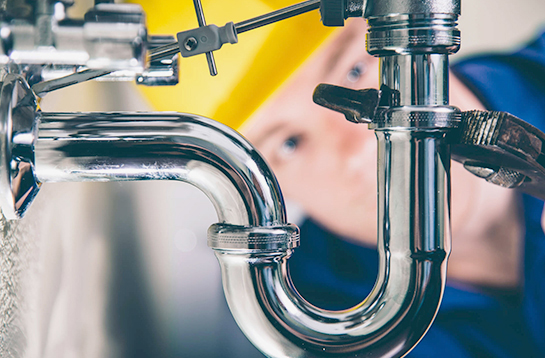
What to Do When Your Garbage Disposal Keeps Clogging
Introduction
A garbage disposal is one of the most convenient kitchen appliances — until it keeps clogging. If you’re standing over a sink full of backed-up water after every meal, it’s more than just annoying. Frequent clogs can signal misuse, improper maintenance, or even a worn-out disposal unit.
This guide explains why garbage disposals clog, what you can do to prevent and fix the problem, and when it’s time to call a professional plumber in Stafford, VA.
Why Garbage Disposals Clog
Understanding the common causes of garbage disposal clogs will help you solve the issue and prevent future blockages.
Putting in the wrong foods: fibrous vegetables (celery, corn husks), coffee grounds, eggshells, and grease can cause clogs.
Overloading the disposal with too much food at once.
Not running enough water while the disposal is in use, causing waste to collect in the drain line.
Dull blades that can’t break down food effectively.
Drainpipe buildup from years of food particles, grease, and soap scum.
Step-by-Step Solutions to Fix and Prevent Clogs
Here’s what you can do to keep your garbage disposal running smoothly.
1. Clear the Existing Clog
First, turn off the disposal and unplug it or flip the circuit breaker for safety. Use tongs or pliers to remove visible blockages from the drain — never use your hands. You can also use a plunger to try to dislodge clogs further down the line.
2. Reset the Disposal
Most disposals have a reset button (usually red) on the bottom of the unit. After clearing the clog, press this button to reset the motor and test the disposal again.
3. Use Cold Water and Run It Longer
Always run cold water while grinding food and let it run for 15–20 seconds after turning off the disposal to flush food particles through the pipes.
4. Grind Smaller Batches
Feed food scraps gradually instead of dumping a large amount at once. This gives the disposal enough time to break everything down.
5. Maintain Your Disposal
Freshen and clean blades by grinding small ice cubes and a slice of lemon. This helps scrape off residue and prevent odors.
6. Inspect the Drain and Blades
If clogs keep happening, the problem may be in the drain line or the disposal blades may be worn down. A plumber can inspect, clean, or recommend replacement if necessary.
When to Replace Your Garbage Disposal
Sometimes the problem isn’t your technique — it’s the disposal itself. Consider replacement if:
The disposal is more than 8–10 years old.
It frequently jams or trips the reset button.
You hear loud grinding or rattling noises.
Water leaks from the unit housing.
Performance doesn’t improve after cleaning and maintenance.
A new, properly sized disposal can reduce clogs and improve efficiency.
Frequently Asked Questions
Why does my disposal clog even when I’m careful?
Drain pipes may already have buildup that traps even small amounts of food. A plumber can clear the drain line to restore full flow.
Can I use chemical drain cleaners in my disposal?
No, harsh chemicals can damage the disposal and pipes. Use natural cleaners like baking soda and vinegar, or have a professional plumber clear the clog.
Should I run hot or cold water?
Always run cold water. Hot water melts grease, which then re-solidifies further down the line and contributes to clogs.
Can I sharpen disposal blades myself?
Yes, running a handful of ice cubes through the disposal can help knock off debris and maintain edge sharpness.
Is it safe to put citrus peels in the disposal?
Yes, small pieces of citrus can freshen the disposal, but don’t overload with thick peels that could jam the blades.
Conclusion
A garbage disposal that keeps clogging is a sign that either your habits need adjusting or your unit needs maintenance — sometimes replacement. Regular cleaning, proper use, and flushing with cold water can keep your disposal clear. If clogs persist, a plumber can professionally clean your drains or install a new, more powerful unit so your kitchen runs smoothly again.